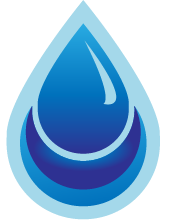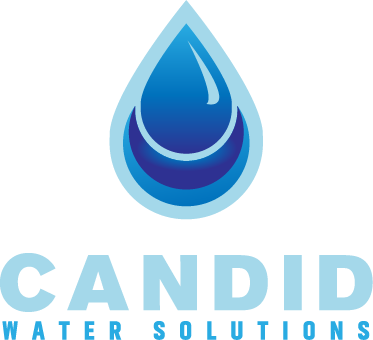Treatment Limitations of Phoenix Water
HARD WATER FACTS
Why Calcium and Magnesium Stay in the Supply Even After Municipal Treatment
Water in Phoenix goes through an extensive treatment process before reaching your home. It’s filtered, disinfected, and tested to meet strict federal and state standards for safety. Yet for all that work, the water that comes out of the tap is still classified as very hard on the water hardness scale.
The reason is simple: municipal systems are not designed to remove calcium and magnesium, the minerals responsible for scale, cloudy dishes, and shortened appliance lifespans.
WHAT TO KNOW ABOUT PHOENIX WATER
What City Water Treatment Actually Removes
Phoenix’s water treatment plants focus on protecting public health rather than appliances. That’s why they primarily remove contaminants that can cause illness or violate safety standards:
- Sediment and debris: Large particles, silt, and organic matter are filtered out.
- Pathogens: Bacteria, protozoa, and viruses are neutralized through chlorine disinfection and other steps.
- Chemical balance: pH and other factors are adjusted to reduce pipe corrosion and meet EPA requirements.
- Taste and odor: Some treatment addresses organic compounds that affect how water smells or tastes.
The result is water that is safe to drink and legally compliant. But because calcium and magnesium dissolve into water at the molecular level, they move through this entire process unchanged.
PHOENIX HARD WATER
Why Hardness Minerals Aren’t Removed
Hard water plays a role in virtually every water heater failure, showerhead replacement, and dishwasher or washing machine issue, costing Phoenix homeowners untold millions of dollars each year. So why doesn’t the city just address those problems by softening water at the treatment plant?
- Not a health concern: Calcium and magnesium aren’t harmful to ingest. In fact, they are nutrients in the diet. Since hardness isn’t considered a public health issue, there’s no regulatory requirement to remove it.
- Massive volume: Phoenix treats hundreds of millions of gallons every day. Stripping hardness minerals out of that much water would require enormous facilities and constant chemical inputs.
- High cost: The infrastructure needed to soften water citywide would mean major construction projects, expensive ongoing maintenance, and much higher water bills for all customers.
- Unintended impacts: Large-scale softening would add sodium or other byproducts into the system, which raises environmental and wastewater concerns.
For these reasons, municipalities treat water to meet safety standards but leave hardness in place. The task of softening is left to the homeowner.
IMPACTS OF HARD WATER
Everyday Effects of Mineral-Rich Water
- Scale buildup in plumbing: Mineral deposits accumulate inside pipes and fixtures, reducing water pressure and causing clogs.
- Shortened appliance lifespans: Water heaters, dishwashers, and washing machines wear out faster when scale coats heating elements and pumps.
- Cloudy dishes and laundry: Glassware looks streaked, and clothes feel stiff because detergents can’t work properly against hardness.
- Dry skin and hair: Soap doesn’t rinse clean, leaving a residue that irritates skin and makes hair feel brittle.
These problems add up over time, costing households more in repairs, cleaning, and replacements.
WHY WATER SOFTENERS ARE IMPORTANT
How Water Softeners Solve the Treatment Gap
A water softener is designed to do what city plants do not: remove calcium and magnesium. Through ion exchange, hardness minerals are replaced with sodium or potassium ions. This prevents scale and gives your home water that feels and works better.
WHY CHOOSE CANDID H20
Why Our Hard Water Treatment Systems Are Effective
- Sized for Phoenix hardness: We match resin volume and flow rates to local conditions to prevent hardness bleed-through.
- Efficient operation: Demand-initiated regeneration saves salt and water by recharging only when needed.
- Optional prefiltration: Sediment and chlorine reduction helps protect the resin bed and extend system life.
- Choice of salt: Homeowners can select sodium or potassium based on preference or irrigation needs.
- Whole-home plus point-of-use: Combine a softener with reverse osmosis at the sink for purified drinking and cooking water.
Phoenix Water Is Safe Out of the Tap, but That Doesn’t Make It Good for Your Appliances, Cleaning, or Bathing
It’s important to note that Phoenix water is carefully monitored and safe to drink straight from the tap without additional home treatment. The problem isn’t safety; it’s practicality and everyday headaches. For homeowners, that means the choice between living with mineral buildup or investing in a system that removes it.

CONTACT US TODAY TO LEARN MORE
Get the Benefits of Softer Water at Home
Phoenix’s treatment plants do their job well, but they can’t prevent scale in your faucets, showers, and appliances. A water softener takes care of the minerals that municipal treatment leaves behind. Call (480) 482-0697 to schedule an at-home installation estimate.

